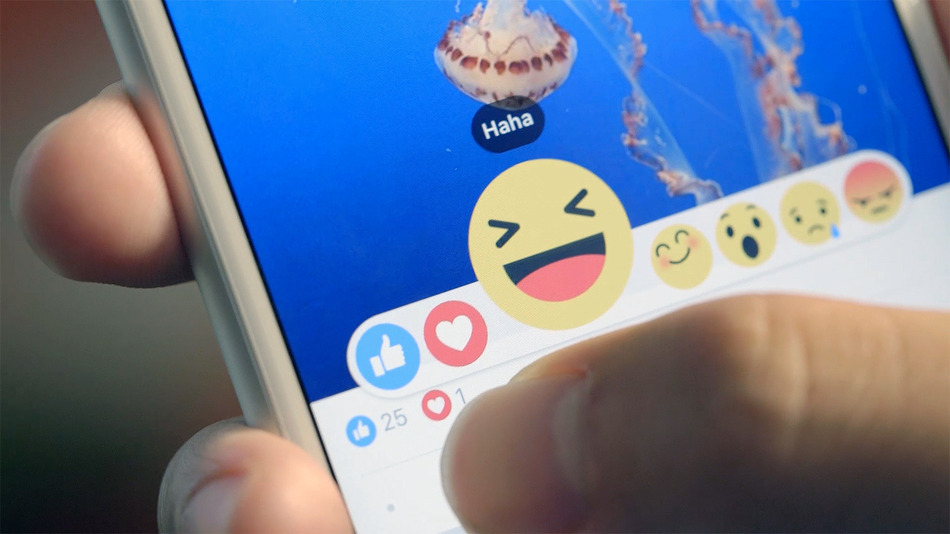If you have not already realized, there is now a new feature on Facebook, both on web and mobile versions. Two weeks ago, Facebook has globally rolled out “Reactions”, providing users with alternatives to its “like” button.
If you have always felt the “like” button to be inadequate in expressing how you feel, now’s your chance to rejoice. You can choose from six different animated emojis: Like, Love, Haha, Wow, Sad or Angry to better show how you feel about a particular post or status.
How To Use It
Simply hover over a post’s Like button in the Facebook news feed, a personal profile timeline, or a Facebook page timeline, and choose from one of the new six Facebook reactions. This feature works the same way for mobile users, but users will hold down the Like button instead of hovering over it.

The Good:
Ever had the experience where you have seen a friend’s post saying that they have just broken up, lost a job or just any other post where a “like” might not have been appropriate but you don’t necessarily feel like commenting? You end up doing just nothing, and that friend would never know that you have in fact been thinking about them.
With Facebook’s New Emojis Reactions, you now have more option to respond with different shades of emotions whilst empathizing with them and adding a more personal reply than just the standard “like.”
As Mark Zuckerberg has said during a Q&A last December, “Giving people the power to empathize with someone in more ways with more emotions would be powerful, but we need to figure out the right way to do it so it ends up being a force for good, not a force for bad.”
The upside to Facebook’s New Emojis Reactions is that there is more room for positivity rather than negativity with these cheerful animated icons for those who are worried that allowing for more options and expressing of emotion towards a post might lead to more hate and even cyberbullying.
It is also great that the reactions have been limited to seven, which helps keep user interactions quick. Imagine having to search through tons of stickers or emojis just to find the right one to respond to in the feed. With Reactions, Facebook has thoughtfully pared down that most economical mode of communication to its barest of bones.
The Bad:
However, are these reactions an accurate reflection of our true feelings or are they simply reactions Facebook compels us to use? You might have noted that this is a rather restrictive palette of emotions. Regardless of age and maturity, many of us may realize that these six Reaction options are simply not enough.
More often than not, we have a complex assemblage of emotions. We may be shocked and angry perhaps at a distasteful video about people who do some really ridiculous things or surprised and glad at a video of cute animals doing cool tricks. If only we could just select two or even three of those Facebook Reactions to convey our true feelings. Choosing just one reaction seems rather reductive. People also want emojis for sarcasm and irony. Where is “Unamused”? Where is “Meh”? We clamor for so many more choices.
Thoughts from Social Influencers
We manage to also speak to three social influencers to get their thoughts on the new feature.
Tong Yee – Director of The Thought Collective, a group of 5 social enterprises, which includes School of Thought, Food For Thought, Think Tank Publishing, Thinkscape and Common Ground.
Question: How does the FB reactions impact you, negatively or positively, seeing since there are so many ways to react to a post now, whether angry or happy or sad?
“I didn’t find FB reactions to be particularly ground breaking. My posts tend to lean more heavily on a positive tone and I usually only post about family, events, learning, and when I find the time to write. So I doubt I am the kind of poster that would get a variety of responses. Unlike broadcast news which necessitates a huge scope, I post more like a magazine, with an audience that is likely already open to narratives I stand for.
Usually, my more controversial and potentially divisive insights or arguments, I take them off social media and hold them in formats such as workshops, lectures or talks, where anonymity is less available, time to go deep is less scarce and tone can be better facilitated.
I am not sure how much new forms of cyber-bullying we might experience through this, or whether we might see an escalation online vitriol, but to me, all feedback is good feedback. And if taken with a considerable amount of salt, I think we can learn a lot more through how people react.”
Tiffany Yong – Actor at Mediacorp
Question: How does the FB reactions impact you, negatively or positively, seeing since there are so many ways to react to a post now, whether angry or happy or sad?
“Positive! I used to not want to “like” a post nor comment when someone posted something sad or bad news. Now, I am more inclined to respond with the new Facebook reaction.
I think the Facebook Reaction is definitely great idea! It encourages more interactivity, engagement and expression of opinions. In the past, people “like” regardless of the content of the status feed or they ignore because they do not think it’s appropriate to “like”. Feeds such as deaths and loss announcements, or even news reports on bully cases and natural disasters. Now, with the various way to express ourselves, we can react to the post accordingly!
I feel that the FB reaction is more of a tool for users to express themselves on Facebook, but users who doesn’t like a particular person will hardly bother to respond to his/her post with an unhappy or angry sign. In fact, they will most probably unfollow or hide that person’s feeds! It is useful to gauge what kind of statuses and feeds one’s friends or followers like!”
Benjamin Loh – Professional Speaker, Coach & Author
Question: How does the FB reactions impact you, negatively or positively, seeing since there are so many ways to react to a post now, whether angry or happy or sad?
“I’m neutral on this. On the receiving end, I’m mostly curious to see who gave the different type of reactions. On the giving end, it’s just about more choices of expressions. To assess sentiments – i think Facebook Reaction is a good start. But I don’t know how much more “usefulness” can be derived in the process.”
Facebook has done a good job at formalizing the range of emotions most of us feel are safe and appropriate to express on a social platform. Coming from the perspective that we would not want negativity directed at ourselves, and negativity aimed at others as well, Reactions make much more sense then. Although they may not reflect the underlying complexities behind human emotions and social interactions, it is a great start for us to better express how we feel without being negative or causing ill feelings either intentionally or unintentionally.
We should not forget though that in the midst of everything, emotions ultimately work in tandem with each other to harmonize our psychological state – a fact that has been reinforced time and again by Pixar’s Inside Out.
Author’s note: This article is written with contribution from Chan Jia En
Featured image credit: Facebook Video











